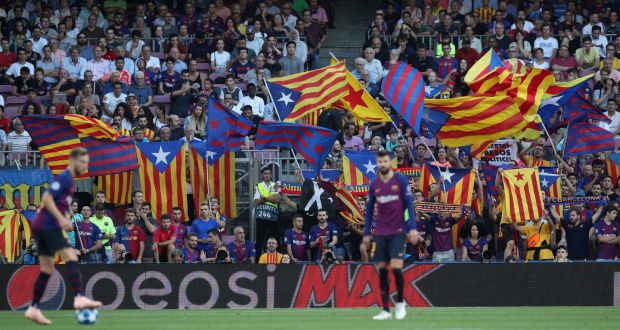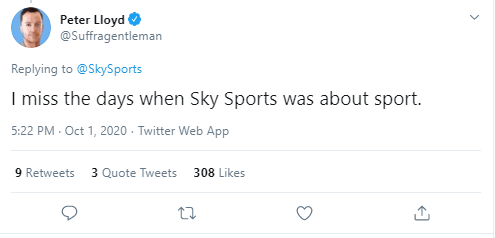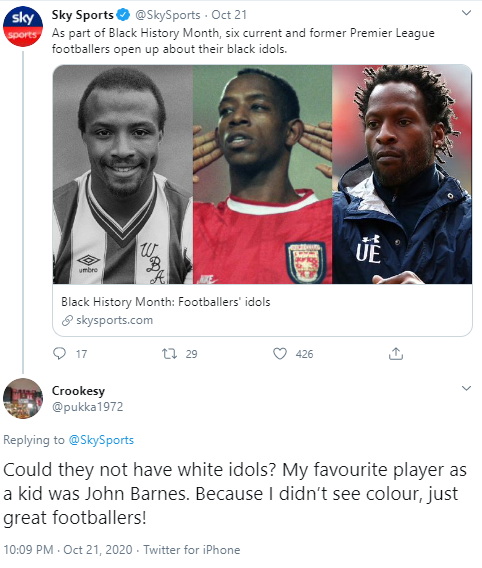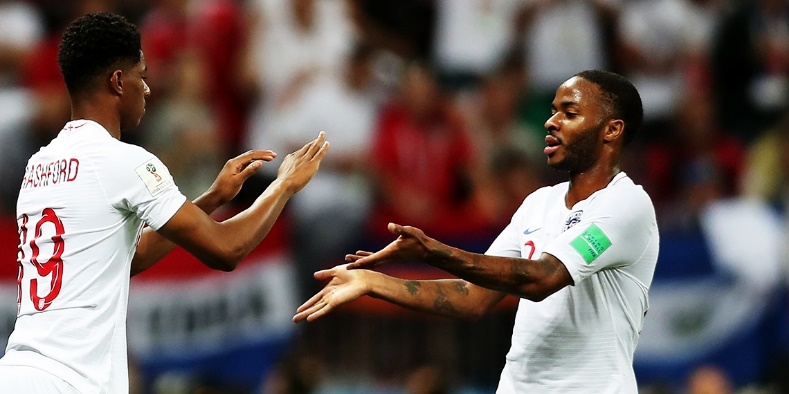In a world that’s as polarised politically and socially as it’s ever been, it can be very difficult for anybody to air an opinion without being shouted down. Say something in support of A and people will criticise you for not supporting B, while judging you for not even mentioning C. Add social media and millions of followers to this and it’s a recipe for disaster – an invitation for angry discourse.
For so long, high profile brands and celebrities have steered clear of being actively vocal about anything, especially politics. This is certainly the case in football. With that being said, football has long been inscribed with tribalism and political symbols – Celtic v Rangers and Real Madrid v Barcelona are good and widely known examples of this.

Fans can sometimes see their clubs as vessels for political sentiment. FC Barcelona is undoubtedly that and the club is most definitely Catalan before being Spanish. Centuries of tension with Madrid who have always represented the King and government have led FC Barcelona to become a symbol of Catalan Nationalism. They have often been fined by FIFA for outward political displays like nationalist flags, underlining a clear message from the various governing bodies – keep politics out of football.
It’s impossible to ignore the political implications of certain clubs and rivalries, but it’s when individuals speak out about political or social issues that seems to cause the most uproar. James McClean has been vilified in recent years for his views on wearing a poppy and back in the 90’s, Robbie Fowler was fined for displaying support for Liverpool dock workers who were striking at the time. ‘Stick to football’ is usually the response that these acts are met with and that in itself is a problem. It’s a phrase and a sentiment that has been become so widely indoctrinated that any time a player speaks up about a social issue, they’re usually met with dismissal and in extreme cases, punished.
Mesut Özil spoke out last year about the treatment of Uighur Muslims in northern China. For context, videos circulated that seemed to show upwards of one million Uighurs being rounded up in internment camps for ‘re-education’. It was an example of an attempt of forced sterilisation and mass persecution and Özil took to his social media to denounce it. He has always maintained that what he said was not against Chinese people, but in support of the Uighur people who were being detained, interrogated and beaten because of their religion.

Since then, Özil has barely featured for Arsenal. The club was very quick to publicly distance themselves from his comments, stating that it is “always apolitical as an organization…and always adheres to the principle of not being involved in politics”. Özil was condemned in China and Chinese broadcasters pulled Arsenal games from their schedules.
Arsenal have removed Özil from their 25-man Premier League squad for this season. Many believe this is a direct result of his vocal denouncement of China’s treatment of Uighurs, though it should be stressed that this is by no means confirmed.
Özil has recently said about Arsenal:
“They said they don’t get involved in politics, but this isn’t politics and they have got involved in other issues.
“In America, we saw George Floyd killed and the world spoke up to say Black Lives Matter, and that is correct. We are all equal and it’s a good thing that people fight against injustice.
“But I wish people would have done the same for the Muslims because Arsenal have many Muslim players and fans as well, and it is important for the world to say that Muslim Lives Matter.”
He raises a thought-provoking argument and two important questions: What role can footballers have in activism? At what point does a situation stop being ‘political’ and start just being a ‘humanitarian’ issue?
The first of those questions has been answered brilliantly in recent months by two of English football’s most impressive stars, both on and off the field.


Raheem Sterling who has been hounded by tabloids for years with sinister racial undertones has spoken out vocally, eloquently and passionately about racism in football. He has become a role model as a result of his persistent calling out of the treatment of black players in the press and in the punditry studio and has helped drive a long awaited and overdue message to football fans worldwide.
Marcus Rashford has worked tirelessly in recent months to reduce child poverty in the UK. He formed a taskforce with food brands and successfully campaigned to extend free school meals to those who needed them over the summer. He’s since been awarded an MBE for his work in helping vulnerable children.
It’s the second of those questions which has become increasingly difficult to answer. Of course, there should be no politics behind wanting vulnerable children to have enough food to eat or wanting to eliminate blatant structural racism. What we are seeing however is the polarising, partisan politicisation of these goals and campaigns and the phrase ‘Stick to Football’ rearing its ugly head yet again.


There are many factors at play here. People, especially archaic and tribal football fans, do not like the status quo being challenged. You only have to sift through the responses to Sky Sports tweets to find out just how bigoted and ill-informed its viewers and our public are. A progressive statement is treated as an accusation and deep-rooted issues are cast aside by people that aren’t affected by them.
Statements like “Black lives matter”, “Kids should not go hungry” and “People shouldn’t be sent to internment camps” are in no way controversial. Why are they met with outrage and so often dismissed if they’re coming from the mouths of footballers? ‘Stick to Football’ is murmured once again.
“This is not politics, this is humanity” says Marcus Rashford MBE. Governing bodies, the general public and everyone else should look at what a 22-year-old man from Manchester has achieved, using his profile and following. In an influencer society, social media has never been so important and huge followings come with huge responsibility. To use that as a force for good should be congratulated and it goes to show that people can unite, and tribalism can be ignored.
Football can be a huge driver for conversations around social mobility. It’s a sport with more players from working class roots than almost any industry and modern day footballers will be able to talk more honestly and empathetically about social issues than any Eton-educated politician ever could.
We should applaud Rashford, Sterling and Özil and welcome an era of footballers who refuse to ‘Stick to Football’.

